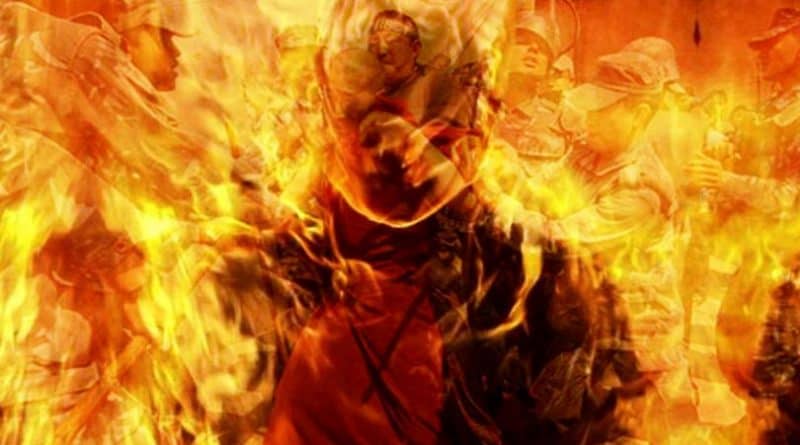In Uzbekistan, a prisoner committed self-arson in protest
In January 2020, the prisoner Khojiakbar Ishankhodjaev died in Kashkadarya region. The cause of death is the consequences of self-arson in colony No. 2.
According to the Association for Human Rights in Central Asia, he was forced to take a catastrophic step by prolonged harassment by the deputy head of the colony, Akmal Ochilov, who was engaged in extortion and constantly mocking and humiliating the prisoner. At first, they tried to save Ishankhodjaev in the city hospital of of Karshi, then he was taken by train to the prison hospital of Tashkent “Sangorod”, where he died.
Human rights activists told ACCA that on December 30, 2019, Khojiakbar was in a barrack, where he did the work of the so-called “captershik,” that is, responsible for economic activities. When all the other prisoners went for breakfast, he doused himself with a solvent and set himself on fire.
The day before, the chief called Ishankhodjaev to his office and ordered to give him two telephones handed by the prisoners before the shift. For failure to comply with the order, Ochilov threatened to place Ishankhodjaev in a specially designated place in the barracks for convicts under Article 120 (“Sodomy”) and those who suffered sexual violence, that predetermined the prisoner’s desire for self-arson.
Recall that on May 28, 2015, Kh. Ishankhodjaev was sentenced to 16 years in prison under article 119 part 4 (“Forcibly satisfying a sexual need in an unnatural form”) of the Criminal Code of Uzbekistan. According to the prisoners of the colony where Ishankhodjaev died, he was imprisoned on the basis of a false denunciation of a former roommate in revenge for failed marriage plans.
“I also served term in this zone,” former political prisoner, Agzam Turgunov, told ACCA. “They will never put a man, who has raped a child, at the depot.” So everyone knew that he was definitely innocent. It is hard to imagine what kind of torment he experienced in a police car to Karshi, and then about 10 hours to Tashkent. The prisoners are resolved in such a heavy death in a hopeless situation.”
Human rights activists note that usually investigations into deaths of prisoners are almost always carried out formally. The lack of conditions for independent monitoring of compliance with prison conditions and operational legal mechanisms for protection against torture leads to suicide, and those responsible for this remain unpunished. AHRCA President, Nadejda Atayeva, believes that it is necessary to investigate the causes of the death of Khojiakbar Ishankhodjaev and the perpetrators as soon as possible.
The authorities are not at all interested to make known the death of Ishankhodjaev, especially on the eve of the 128th session of the UN Human Rights Committee. It will consider the report of the Government of Uzbekistan on the implementation of the International Covenant on Civil and Political Rights.
Earlier, ACCA responded to the message of the Main Directorate for the Execution of Sentences of the Ministry of Internal Affairs of the country. The press service of the department tried to refute the publication of the portal “Bullying and torture continue in the colonies of Uzbekistan”. Journalists in uniform did not forget to mention the January material “In Uzbekistan, systematic bullying forces prisoners to commit suicide”.
Recently, ACCA became aware that the General Directorate for the Execution of Sentences knows who disseminates information about the real situation in prisons and intend to take some measures to stop the leak of information.




